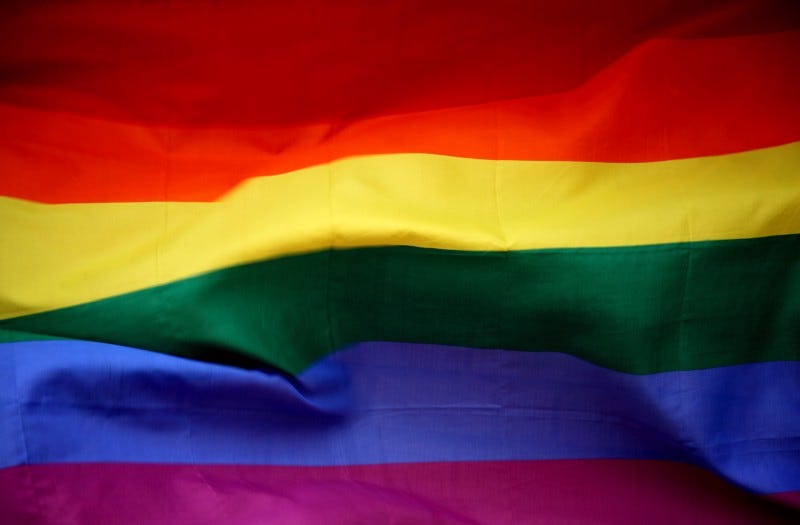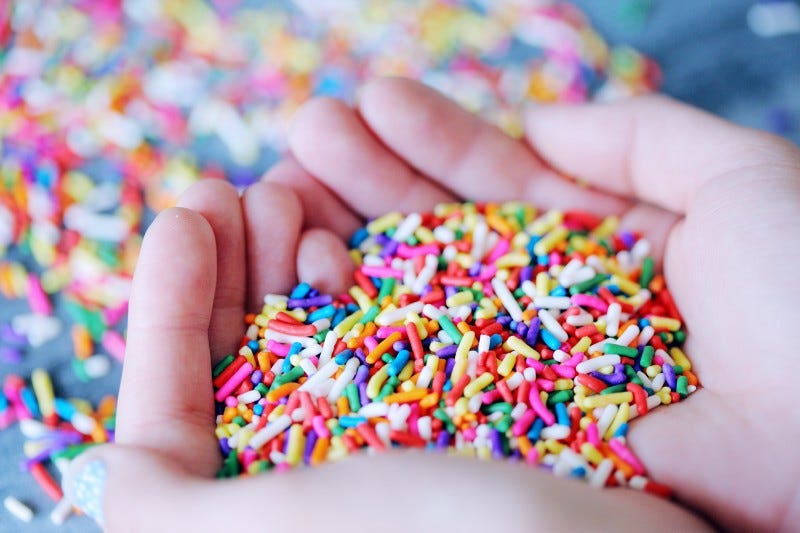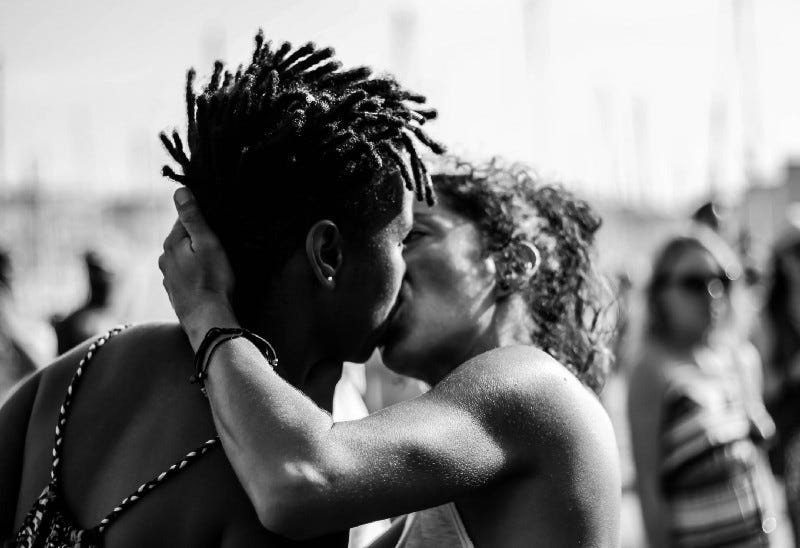Hurt queer people, hurting other queer people.

If you’re bisexual and you run in LGBTQ circles, you’ve had some flavor of this experience. A gay or lesbian person sees you with an opposite-sex partner, surmises you’re just an ally, and proclaims you straight. Or you’re passed over for a leadership role in a queer group, because it’s assumed there are aspects of queerness you don’t actually get. Maybe somebody with a few beers in them says something outright terrible to you: you pass as straight in society, you could always date a straight person, you could forever opt out, fade into the background, and be safe.
And it hurts. And it makes you feel excluded you from queer spaces you hoped would be welcoming. And it reminds you of every cruel, biphobic thing that every straight person has ever uttered to you. And it makes you feel, maybe for a moment, as if being bisexual is Harder, Really; you’re maybe tempted to believe it’s Harder Than Being Gay(tm). Maybe you even say that. Maybe you come to think of bisexual people as somehow more enlightened, less judgmental — and start to see gay folks as yet another oppressor class.
You’re hurt, and you’re on the brink of something dangerous. If you keep thinking that way, you’re gonna isolate and diminish queer people who are suffering just like you. You’re gonna deal out some pain yourself.
…
If you’re gay or a lesbian and you run in LGBTQ circles, you’ve had some flavor of a different experience. Someone has called you closed-minded for not considering the beauty of the opposite sex. You’ve been accused of being a powerful member of a gay elite, oppressing bisexuals and pansexuals the same way you were once oppressed. Someone has gotten drunk and put a hand on your arm and asked you, are you really just gay? Do you really never find anyone of the opposite sex attractive? What about that guy over there? Have you ever tried to be with a girl?
And it hurt. And it made you feel unsafe or uneasy in queer spaces you had hoped would be your home. And it reminded you of every cruel, homophobic thing that every straight person has ever uttered to you. And it evoked for you all the times you were pressured to compromise your gayness, to try and hide it, to fade away, to become an alloyed version of yourself, one that could live a hidden, straight, lonely life.
You’re hurt. And your social world is getting smaller. And that’s exactly what homophobes, biphobes, and a largely intolerant society wants.
…
There is a way to talk about biphobia as a separate experience from homophobia without implying that gay people are an awful, powerful oppressor class. All you have to do is acknowledge that gay and lesbian people can commit horizontal aggression against bi people. This requires you also acknowledge that, you guessed it, bi people can commit horizontal aggression against gay men and lesbians.
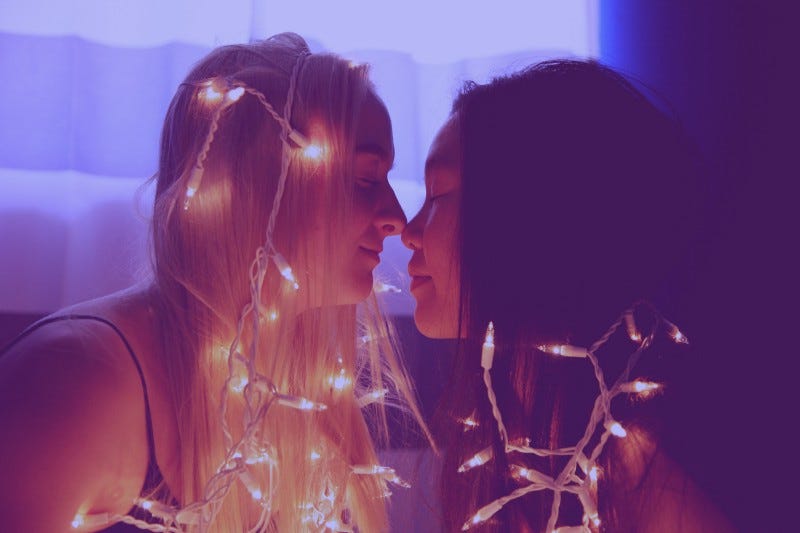
Homophobia and biphobia are separate things.
Both can involve straight people shaming queer people for their same-sex attraction, of course. They are wrapped up in the same larger hatred of queerness. Both bisexual people and gay people are unfairly stereotyped by straight folks as hypersexual, perverted, unsafe for children to be around, and incapable of monogamy or raising ‘traditional’ families. Gay people and bisexuals both receive abuse, are pressured to change themselves into straight people, and suffer from a lack of representation in media and culture. We are seen as sinful. We endure the trauma of having grown up in a world that would rather act as though us and our desires do not exist.
But homophobia and biphobia can also manifest in distinct ways. For example, bisexuals are often depicted in media as untrustworthy, indecisive, impulsive, willing to have sex with just about anyone. Gay men are often stereotyped as sexually promiscuous, too, and this sexuality is often demonized or seen as predatory by straight people as well — but it is depicted as more focused on men (obviously), and as a threat to men, specifically. In media, gay men are more often treated as a subject of mockery or revulsion, and more likely to be seen as feminine in unacceptable ways.
Put another way: in fictional media, bisexuals are often unrepentant, two-faced, hedonistic supervillains; gay men are often strange, insufficiently masculine perverts who prey on men or make men uncomfortable and need to be beat up. Both sets of stereotypes are vile. And dangerous. And yes, they have considerable overlap. But there are distinctions between them.
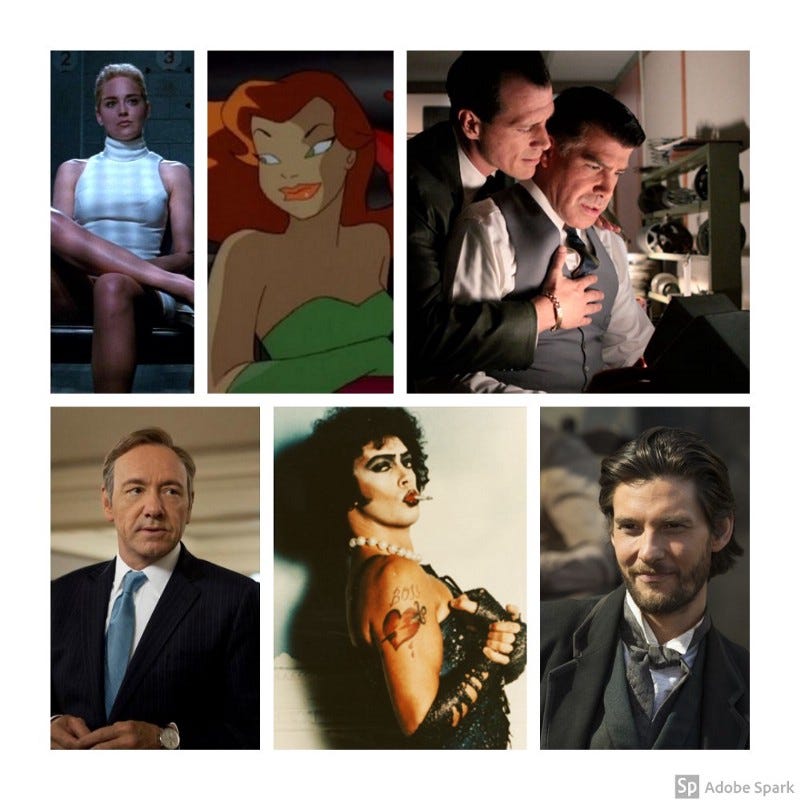
The same is true of stereotypes regarding bisexual women and lesbians. Bisexual women are often depicted in media as sexually alluring, but untrustworthy. They usually are either turncoats who will betray the (straight) heroes, or they are confused, sexually unrestrained women who will eventually settle down with a man and be brought to heel.
Lesbians, in contrast, are often depicted as unattractive, or unacceptably masculine. They are often de-sexualized and de-gendered by the narrative, and not allowed to experience romantic or sexual connection on screen at all. A lot of times, lesbians are seen as so irrelevant to the story’s world that they are killed off with little fanfare. And of course, the reason they’re seen as irrelevant is that they are not sexually accessible to men.
Once again, there is overlap between the stereotypes foisted on both categories. Once again, the overall phenomena remain distinct.
…
Unfortunately, even if you are a queer person, you are bound to observe and absorb some of these unfair stereotypes during your time on earth. And once you’ve learned these pernicious stereotypes, you’re likely to show bias against your queer brethren. And so, a lesbian woman may come to see bisexual women as indecisive and ultimately straight. A bisexual woman may be prejudiced against lesbians for not making themselves attractive or available to men. And in this way, two people who have a ton in common may become alienated from one another, and may hurt each other by poking at a much larger, societally-induced wound.
…
The thing about horizontal aggression is that on the receiving end, it can look and feel a hell of a lot like oppression! When a gay dude dismisses me as basically a straight person, it stings the same way a straight person being biphobic does. In both cases, the words are similar. The underlying assumptions are the same. When the biphobia hits me, it gets added in my mind to the huge pile of previous biphobic experiences that I’ve had in my life.
That pile of memories can look kind of monolithic. The offhanded biphobia of a lesbian acquaintance in a bar can sound and feel a lot like the slut-shaming dealt to me by a straight ex-boyfriend who hated my queerness. It can make me, a bi person, feel like even LGBTQ spaces are not safe, it’s us bi’s against The World.
But I’d be lying to myself if I actually claimed that gay people and straight people are in cahoots to oppress bi people. They don’t both profit off the oppression of bi people. They don’t have the same stakes in the game.
…
When I’m oppressed by straight people (on sexual orientation grounds), it’s because I’m bi. When I’m mistreated, overlooked, or stereotyped by gay people (on sexual orientation grounds), it’s also because I’m bi. But the former is a hell of a lot more powerful than the latter, in real terms, because straight people have more power in society and the world is built for straight people.
That doesn’t mean biphobia from gay people doesn’t hurt just as bad on an individual level. It hurts worse sometimes, in fact, because it feels like a betrayal. The same way that receiving sexism from a woman can be especially wounding, receiving biphobia from another queer person can sting ten times worse than garden-variety straight ignorance. But the source of the pain is always straight status and power.
Think of it this way: the very moment a queer person is born into a straight society, they are dealt a massive and traumatic wound. No matter how much that wound is tended and treated, it will scar over a bit, and will have the potential to sting and ache throughout the queer person’s life. When a queer person says something homophobic to a gay friend, they are jamming a finger into their friend’s wound. The queer person didn’t cause the wound. Society did. But the pain that echoes throughout that raw, tender spot will feel eerily reminiscent of the original blow that made the wound in the first place. And will remind the person carrying that wound that they are vulnerable to future attacks.
Horizontal aggression is awful. But it’s still not the same thing as systematic, top-down oppression. It’s a totally different kind of phenomenon. It’s still potentially traumatizing and re-traumatizing. But it’s not the same as hate radiating from straight people and straight systems.
…
Another way in which people confuse this issue is by pointing at increased straight acceptance of monogamous, family-oriented, palatable gay relationships. Only some queer people are being widely accepted, the logic goes, and so those accepted, privileged queer people now have the ability to oppress other queer people. So a married gay couple, this theory might say, has monosexual privilege and can oppress bisexuals.
But with a little bit of scrutiny, this logic falls apart. Straight acceptance of queer people is highly conditional and highly limited, and that is the fault of straight systems of power. It’s still an example of straight people and straight-dominated systems of power deciding who is acceptable, who doesn’t deserve respect, and who is on very thin ice.
If a cisgender gay dude succeeds in a society that is tentatively tolerant towards him — but only so long as he presents his gayness in the exact right nonthreatening way — his gayness is still not a privilege. Even if the gay dude in question holds some biphobic, shitty viewpoints that really hurt. Even if he is seen as an “acceptable gay” by some of straight society. In a homophobic society, his gayness remains a target on his back. All that has changed is that society has deigned to not shoot at the target, so long as he looks and acts as docile and straight and assimilated as possible, and prospers on straight-people terms.
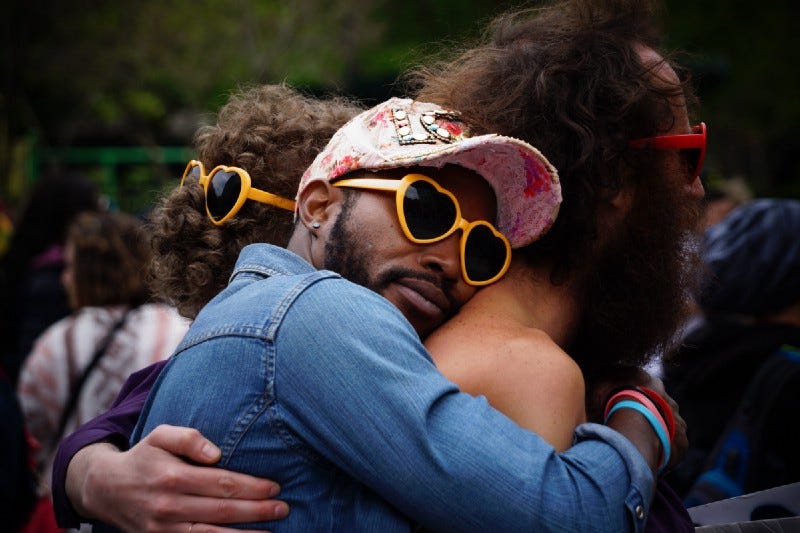
The obverse is also true. If a cisgender bisexual woman partners with a straight, cisgender man, she may be treated with tentative tolerance by straight society-at-large. As long as she doesn’t speak about her desire for women, doesn’t challenge traditional family values and monogamy, styles herself in a sufficiently feminine way, and looks as straight as she can, she may be able to dodge some explicit biphobia. This does not make her bisexuality a privilege. Her tenuous status is not true acceptance. It is conditional.
…
When gay people and bisexual people are pitted against one another, they lose they ability to unite against the systems and stereotypes that harm them both. This isn’t a particularly novel observation, of course — currently, many conservatives and fascists are working to reproduce this same rift between gay and trans people. In order to fight against this, and to remain a vibrantly healthy, diverse community, LGBTQ people cannot focus solely on our shared experiences of oppression. We must also work to understand, and be compassionate about, the oppressions that other queer people experience, but which do not personally affect us.
We have to be sensitive, as well, to the ways in which we have internalized bias against other queer people, and do all that we can to avoid poking one another’s wounds. Our wounds each have slightly different shapes, but they are all deep, lingering, and painful. Most importantly, they all came from the source. The source of the wound — the source of our ongoing mortal threat — is never another queer person. It is the society that brutalized each of us, and then conspired to turn us against ourselves.




